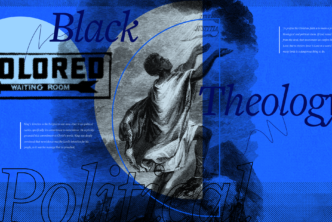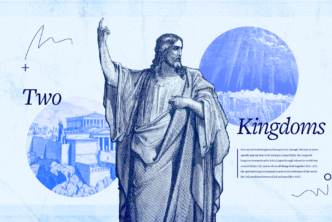For many philosophers, God’s existence resolves otherwise unsolvable puzzles. The great rationalists—René Descartes, Baruch Spinoza, and Gottfried Leibniz—argued that knowledge comes not from the senses, but from reason and innate ideas. From there, they developed some fascinating notions of God and the world.
Descartes
Widely considered the father of modern philosophy, Descartes introduced Cartesian doubt and the cogito. In his Discourse on Method and Meditations, he resolved to doubt all that could be doubted. Can you doubt that you’re reading this blog post? Of course; you might be dreaming. Can you doubt that a square has four sides? Yes; a demon might be causing you to err. But a demon couldn’t trick you if you didn’t exist at all. Hence his famous cogito: “I think, therefore I am” (Cogito, ergo sum).
So why not continue doubting the whole world? Because God is good. Our inclination to believe in the world is so strong that if the world did not exist, God would be deceitful; therefore, the world exists.
Spinoza
Baruch Spinoza understood God as in every way infinite. Thought and matter, he argued, are attributes of God, and so are human souls. The chief end of humanity is not personal immortality, but union with the divine.
If the world is an attribute of God, to understand the world is to understand God. “The mind’s highest good,” Spinoza wrote in Ethics, “is the knowledge of God, and the mind’s highest virtue is to know God.” That’s a description, though, not a command—according to Spinoza, if you understand the world, such a higher good is inevitable. If you know all things to point to God, the idea of God will fully occupy your mind.
Leibniz
Building on arguments that stretch back to Aristotle, Leibniz refined four proofs of God’s existence:
1. Ontological
In an argument built on St. Anselm and Descartes, Leibniz argued in Monadology that “There is . . . or there can be conceived, a subject of all perfections, or most perfect Being. . . . it follows also that he exists, for existence is among the number of the perfections.” That is, the essence of God is perfection, and a God who exists is better than a God who does not; therefore, God exists.
2. Cosmological
Aristotle noted that all actions have causes, which in turn have causes, which in turn have causes. But the series can’t be infinite; the first action must be uncaused. God is the universe’s uncaused cause. Leibniz, in turn, saw the universe as contingent—not demanded by logic, not inevitable. Given that logic permits the universe not to be, and that the universe contains no reason for its being, it points to a reason beyond itself: God.
3. Eternal truth
Leibniz observed that statements—thoughts—are true in different ways. Though “it’s sunny” may sometimes (or, in Bellingham, rarely) be true, “2 + 2 = 4” is true eternally. And thoughts are the work of minds. An eternal truth must be the work of an eternal mind: God’s.
4. Design
The world, noted Leibniz, is full of things that can’t be explained by blind natural forces. Such things testify to a creator. Though Leibniz advanced this argument long before Darwin proposed evolution, Leibniz’s point sounds familiar: it’s the thrust of today’s Intelligent Design.
Such notions and proofs of God aren’t biblical, of course. They’re grounded in pure reason, and that’s what makes them fascinating. It’s worth remembering that, in seeking to explain the world, some of the West’s most important thinkers turned to God.




